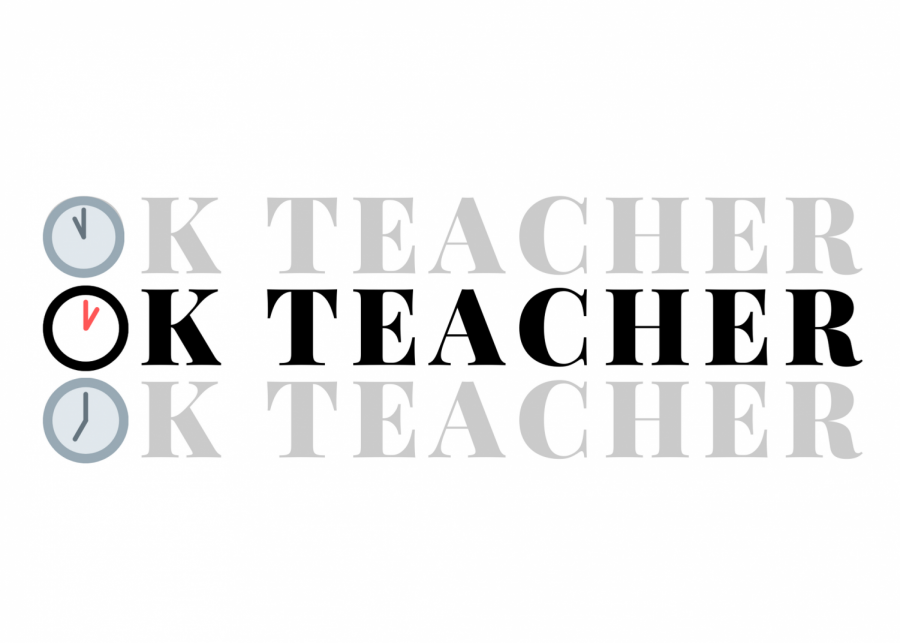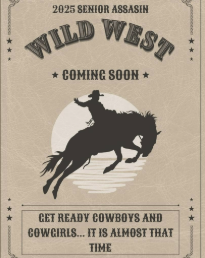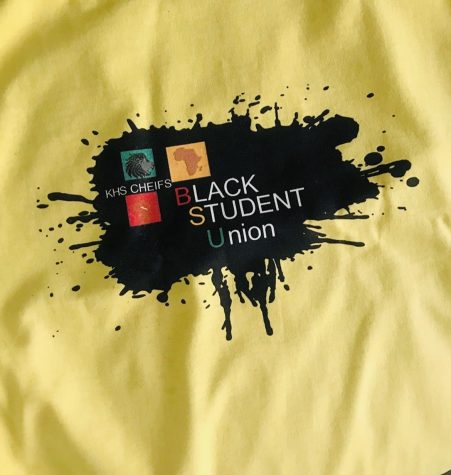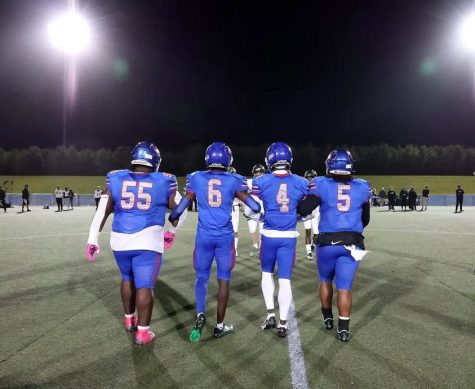“OK Teacher”: How the Generation Gap is Affecting Kempsville
It’s nearing the end of the school day and everyone is ready to go home as last block begins. However, as the minutes on the clock count down, and class draws closer to its end, students become restless and their attention starts to drift away from class, feeding into distractions that carry them to the end of the block. The teacher stands desperately in front of the class trying to get students’ focus back, but to no avail. The teacher can’t help but sigh in exasperation. Things were different when they were in school; phones hadn’t been as important and available as they are now. With the students living their own lives and the teacher left feeling helpless, one can wonder what changed throughout the times.
All over the media, news outlets and websites have been reporting the latest meme: “OK Boomer” a simple phrase that has sparked an all-out war between Baby Boomers (the recipients of the phrase), Millennials, and the newest generation, Generation Z. Baby Boomers feel as if the phrase is mocking, extremely offensive, and disrespectful whereas Millennials and Generation Z feel that the phrase isn’t as serious compared to the amount of disrespect they have to endure from the older generation.
The debate between the generations has tension high for everyone, but what does this have to do with school?
As more students come and go through school, teachers end up teaching many different generations as they come. However, it isn’t difficult to see that most teachers have a hard time teaching today. Alternatively, it also isn’t difficult to see that students are having a hard time in school, as well. One would think that this could be caused by the difference in generations, but is the generation gap to blame?
Elizabeth Salmon, a Social Studies teacher, has been teaching for 24 years and feels that the students in school now aren’t much different from students from her generation.
“Students in school, when I was in school, were the same as students are now. Life was different at that time,” Salmon said, explaining what might have been different from the two generations. “There wasn’t the technology that there is now, so we had different challenges and there were different expectations of students at that time, but teenagers when I was in high school at Cox High School were the same as teenagers at Kempsville High School in 2019.”
While she sees students as being the same in nature, she does perceive academic differences between the two generations.
“When I was in school, the tests were a lot more demanding. Kids were expected to memorize more and balance more and a lot more students didn’t pass classes and had to repeat classes. Fewer students went to college.”
Fellow Social Studies teacher Michelle Gelardi can agree with some of the expectations for students in the past.
“We were expected to do homework every night. We were expected to study outside of school, prepare for tests, pay attention during class, not talk when the teacher is talking,” Gelardi said, listing some of the expectations for students at the time.
While some of the academic expectations from students have seemingly decreased, Salmon thinks this may be because of other pressures.
“I think that there is more stress on students today of other types. There’s more divorce, more students are from single parents, more mothers are working, so students don’t have as big support systems. I think also that social media causes more anxiety, so students overall I think are more anxious. I think there’s more stress from outside, so because I think students maybe feel less secure and less supported than they did when I was growing up that maybe we felt the need to take some of the academic pressure off of students that they had in earlier times.”
Meanwhile, there are some concerns that students wish teachers understood the lives of the newer generation.
“I wish that they would understand that some of us have lives outside of school. We might have to watch brothers, siblings, we might have to work jobs,” said senior Kaya Thornton.
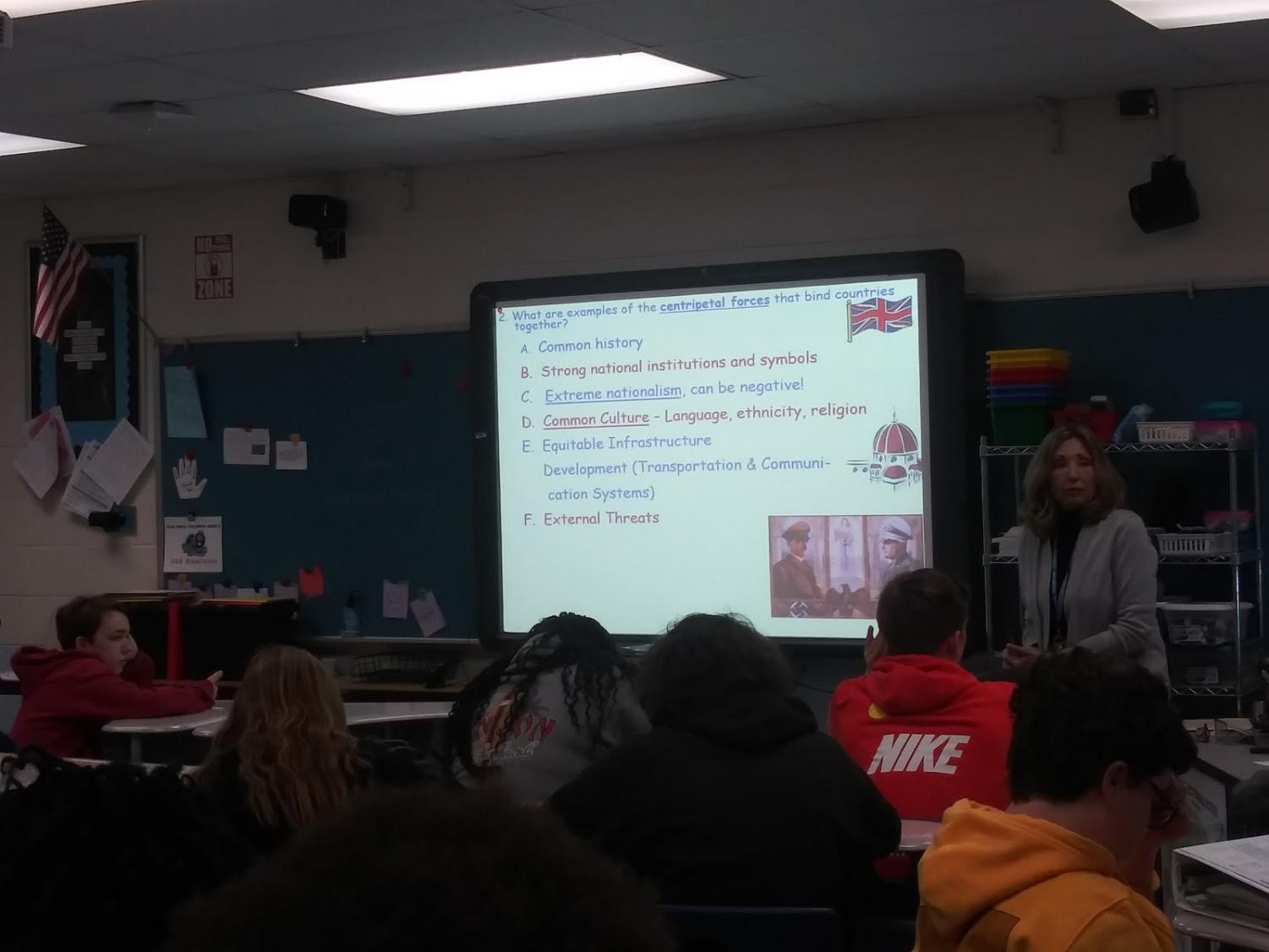
“I think the most important thing is to build a relationship with your students so that they understand why your expectations are what they are,” Social Studies teacher Elizabeth Salmon shares as she describes how she built a trusting relationship between her and her class. Salmon has taught all levels of students from average to AP and has maintained her classes through high expectations and enforcing teamwork.
“I wish they understood that not every teenager is the same,” senior Niya Diggs stated as another issue she wanted teachers to understand about her generation. “ I wish they would be more patient with our generation and more open-minded.”
While the two seniors felt that teachers could be slightly more understanding of their generation situation, they felt that their generation could also be more understanding towards teachers.
“Maybe if we put ourselves in the teachers’ shoes and understand what they go through and the things that they do to be able to help us learn, we could understand why they do something and so we won’t be so judgemental of the things that teachers do,” Diggs stated.
“Have more respect for other people,” Thornton added.
The teachers have also put forward the effort to cater to the needs of the younger generation.
“I give students more study aids and study guides, more assistance in learning than I used to. They’re less independent learners than they were when I first started teaching, so I’ve accommodated that need, but I still keep the classroom well organized and the students appreciate that. They tell me all the time that they learn a lot in my classroom and they like the way that I run the classroom, so I haven’t really changed that. I still keep high expectations for my students,” Salmon explained.
“I do more teaching where the students are acquiring the learning on their own, and then I facilitate,” Gelardi said of her method of teaching, which allows students to work at their own pace.
As it seems, despite the generation gap dividing the generations on the internet, students and teachers here at Kempsville High School are doing just fine.

Mylynn Hopper is a senior here at Kempsville High School. She is also a member of the Spanish Honor Society. She enjoys creative writing and photography.



